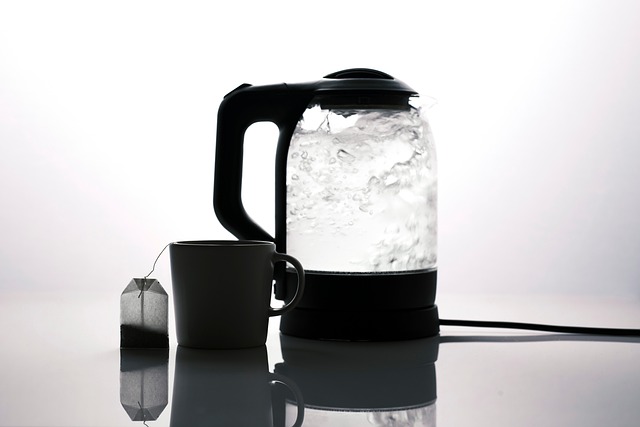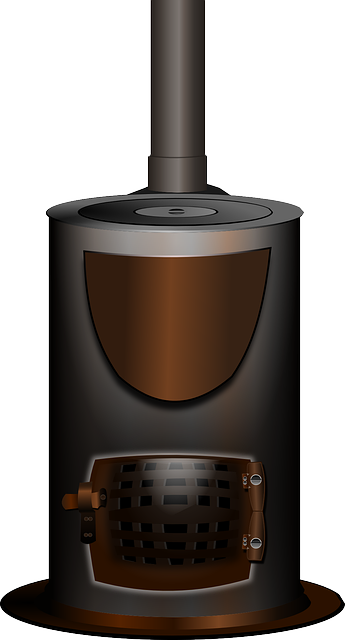Regularly inspect your water heater for signs you need a new one to prevent costly breakdowns and ensure consistent hot water. Look out for temperature drops, excessive noise, fluctuations, rust or leaks, and age (over 10 years). Annual maintenance, including insulation and component replacement, prolongs life and energy efficiency. Addressing issues promptly prevents safety hazards and saves on energy costs.
Avoid an unexpected cold shower and costly repairs with these expert tips on preventing water heater breakdowns. Learn to recognize the subtle signs of an aging system, such as erratic hot water temperature or frequent fluctuations. Implement routine maintenance practices including flushing and insulating your heater for maximum efficiency. By staying proactive, you can extend its lifespan and prevent costly emergencies. Discover when it’s finally time to replace your water heater based on usage patterns and persistent red flags – no more guessing games!
- Recognize Signs of an Aging Water Heater
- Maintenance Tips to Prevent Breakdowns
- Understanding When It's Time for a Replacement
Recognize Signs of an Aging Water Heater

Recognizing the signs of an aging water heater is crucial in avoiding unexpected breakdowns. Over time, your water heater can exhibit several indicators that it’s reaching the end of its lifespan. One of the most noticeable signs is a significant drop in water temperature, even after running the hot water for several minutes. If you find yourself constantly adjusting the thermostat to achieve a comfortable temperature, it might be time for an upgrade.
Another common sign is excessive noise coming from the water heater. Rusting and corroded parts can lead to banging or clicking noises, which could indicate serious issues within the tank. Additionally, if you notice frequent temperature fluctuations, where the water suddenly becomes too hot or cold, it’s a clear signal that your heater’s control mechanisms are failing. Keep an eye out for these signs You Need a New Water Heater to ensure smooth and reliable hot water service in your home.
Maintenance Tips to Prevent Breakdowns

Regular maintenance is key to preventing water heater breakdowns. Start by checking your heater’s condition annually, looking for signs such as rust or corrosion on the tank and surrounding pipes. These indicators could point to a leaking water heater, which not only wastes valuable resources but also increases the risk of damage to your home.
Replace any outdated components, especially if your water heater is more than 10 years old. Look into energy-efficient models that can help reduce heating costs and extend the life of your system. Additionally, insulate pipes leading to and from the heater to prevent temperature fluctuations and reduce heat loss, ensuring optimal performance and longevity.
Understanding When It's Time for a Replacement

Many homeowners often overlook regular maintenance, assuming their water heater will function indefinitely. However, this isn’t always the case. Recognizing the signs that indicate a need for a new water heater is crucial for avoiding unexpected breakdowns. One of the primary indicators is age; as your water heater ages, its efficiency and performance diminish, leading to increased energy costs and potential safety hazards. Most tanks have an average lifespan of 10-15 years, beyond which they become prone to more frequent malfunctions.
Another set of signs point towards internal damage or corrosion. If you notice rust buildup on the tank or evidence of leaks, it’s a clear signal that your water heater is reaching the end of its life cycle. Additionally, pay attention to inconsistent hot water supply—if you’re experiencing prolonged cold spells or frequent fluctuations in temperature, these could be early warnings. Keep an eye out for unusual noises coming from the tank as well; banging or rumbling sounds might suggest internal damage that requires immediate attention.
Regular maintenance and prompt attention to signs of aging can significantly extend your water heater’s lifespan. By recognizing red flags like declining hot water pressure, unusual noises, or frequent temperature fluctuations, you can take proactive steps to prevent costly breakdowns. Implementing simple yet effective maintenance tips, such as flushing the system periodically and insulating your tank, will contribute to its longevity. While a replacement might eventually be necessary, especially for older models, staying vigilant can help you identify when it’s time to invest in a new, more efficient water heater, ensuring reliable hot water for years to come.
